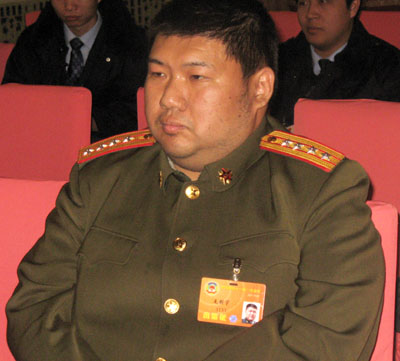"Educational reform should give equal importance to the teaching of basic knowledge and to the practice of working skills," Mao Xinyu, member of the 11th National Committee of the Chinese People's Political Consultative Conference (CPPCC) and the grandson of late Chairman Mao Zedong, told China.org.cn during an exclusive interview on Wedneday.
"We should work harder to boost the vocational school development because these skills are desperately needed in today's employment market; we need well-educated students with practical skills," Mao said, referring to jobs for college graduates as one of his major concerns.

Mao Xinyu pointed out that there should also be a reliable system that would attract college graduates to return to the countryside and also stimulate overseas returnees to participate in the great development of the western regions. "We should help them understand that rural areas and the western regions have great potential waiting to be tapped and that they would score more significant success in these areas."
As the grandson of Chairman Mao Zedong, Mao Xinyu said that Chinese youths should bear Chairman Mao's instructions firmly in mind and try their best to absorb knowledge from a full range of people, such as workers, farmers and friends.
Mao Xinyu said that he would also make proposals revolving on the development of national defense technology, space technology and other state-of-the-art technologies.
Regarding the 17.6 percent rise in the national defense budget, Delegate Mao said most of the funds would go toward the salaries and pensions of grassroots servicemen in order to honor their contributions to the country.
"China has been crowned with brilliant success in a wide range of fields, and the country has made much headway in education in the past three decades," Mao Xinyu said, noting that this year also marks the 30th anniversary of China's reform and opening-up.
"You journalists might cover more activities focused on Chinese youth," Mr. Mao kindly remarked to the China.org.cn staff reporter at the end of the interview.
(China.org.cn by staff reporter Chen Xia, March 5, 2008)